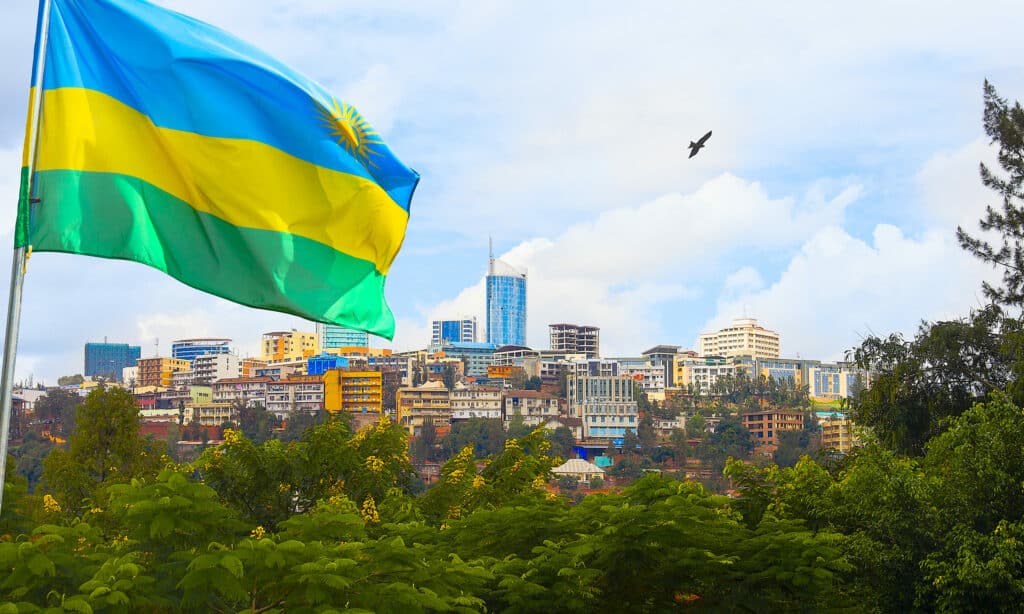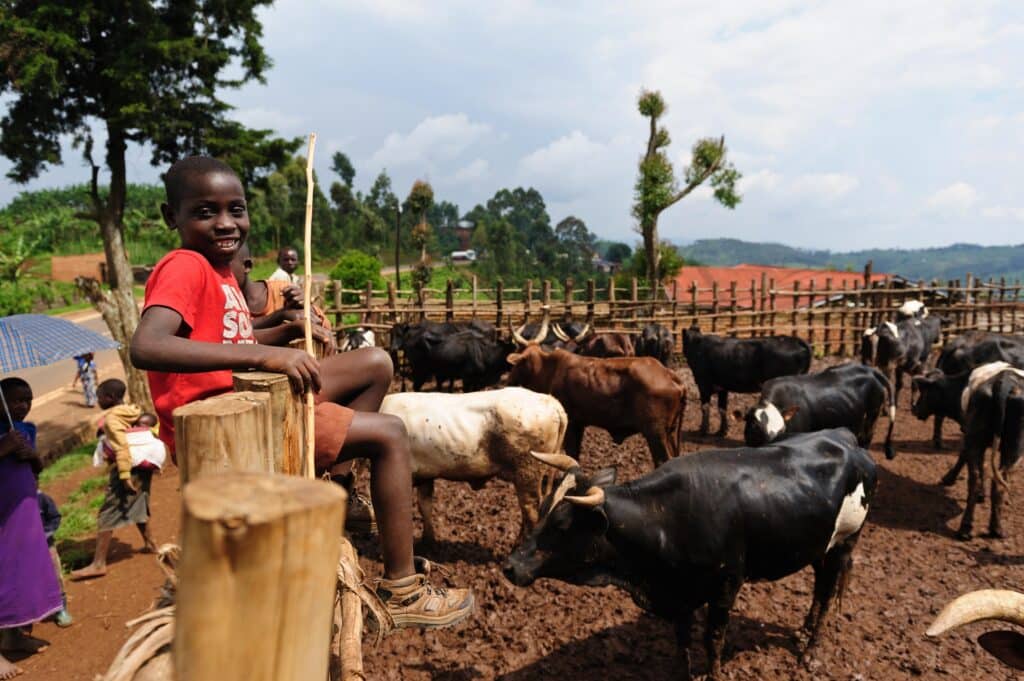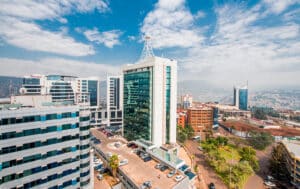Expat financial advisor in Rwanda part 1 – that will be the topic of today’s article.
I will compare some of the options available locally, alongside more portable, online, and international options like what we offer.
For any questions, or if you are looking to invest as an expat, you can contact me using this form, or via the WhatsApp function below.
It makes sense to have a portable option as an expat, as opposed to a localized one, and that is something we specialize in.
INTRODUCTION
Rwanda, officially known as the Republic of Rwanda, [10] is a landlocked country in the Great Rift Valley where the African Great Lakes region and East Africa converge. Located a few degrees south of the equator, Rwanda borders Uganda, Tanzania, Burundi, and the Democratic Republic of the Congo. It is located high on a hill, which gives it the nickname “land of a thousand hills.”

Geography is dominated by mountains in the west and savannah in the east, as well as numerous lakes throughout the country. The climate is temperate to subtropical, with two rainy seasons and two dry seasons each year. Rwanda has a population of over 12.6 million living on an area of 26,338 km2 (10,169 sq mi) and is the most populous country in mainland Africa. The capital and largest city of Kigali is home to a million people.
The population is young and predominantly rural; The population of Rwanda is one of the youngest in the world, with an average age of 19 years. Rwandans come from only one cultural and linguistic group – Banyarwanda. However, there are three subgroups within this group: Hutu, Tutsi, and Twa. The Twa are a forest dwarf people often thought to be the descendants of the earliest inhabitants of Rwanda.
Scholars disagree about the origins and differences between Hutu and Tutsi; some believe that the differences stem from former social castes within the same people, while others believe that the Hutu and Tutsis came to the country separately and from different places. Christianity is the most widespread religion in the country; the main language is Kinyarwanda, which is spoken by the majority of Rwandans, and English and French are additional official languages.
The sovereign state of Rwanda has a presidential system of government. The President is Paul Kagame of the Rwandan Patriotic Front (RPF), who has served continuously since 2000. Rwanda today has low levels of corruption compared to neighboring countries, although human rights groups report suppression of opposition groups, intimidation, and restrictions on freedom of movement. speech.
The country has been ruled by a strict administrative hierarchy since pre-colonial times; In 2006, five provinces delineated borders. Rwanda is one of three countries in the world where women make up the majority in the national parliament. The other two countries are Bolivia and Cuba.
Hunter-gatherers settled the area in the Stone and Iron Ages, and later the Bantu. The population first united into clans, and then into kingdoms. The Kingdom of Rwanda has dominated since the mid-eighteenth century, when the Tutsi kings conquered others militarily, centralized power, and later pursued anti-Hutu policies.
Germany colonized Rwanda in 1884 as part of German East Africa, followed by Belgium, which invaded in 1916 during World War I. Both European nations ruled through kings and perpetuated Tutsi politics. The Hutu population revolted in 1959. They massacred numerous Tutsis and eventually established an independent Hutu-dominated republic in 1962, led by President Gregoire Kayibanda.
Rwanda’s booming economy was hit hard after the 1994 genocide but has strengthened since then. The economy is based mainly on subsistence farming. Coffee and tea are the main commercial crops for export. Tourism is a fast-growing sector that is currently the main source of foreign exchange earnings in the country.
Rwanda is one of only two countries where mountain gorillas can be safely visited, and visitors pay high prices for gorilla tracking permits. Music and dance are an integral part of Rwandan culture, especially drums and choreographic dance. Traditional arts and crafts are produced throughout the country, including imigongo, the unique art of making cow dung.
Rwanda is governed as a unitary presidential system with a bicameral parliament, ruled by the Rwandan Patriotic Front since 1994. The country is a member of the African Union, the United Nations, the Commonwealth of Nations, COMESA, OIF, and the East African Community.

Political status
Rwanda has maintained its political stability since the 1994 genocide. In the September 2018 parliamentary elections, women won 61% of the seats, the Rwandan Patriotic Front retained an absolute majority, and the opposition parties, the Rwandan Green Democratic Party and the Imberkuri Social Party, each won two seats for the first time. President Paul Kagame was re-elected to a seven-year term in August 2018 following a constitutional amendment allowing for a third term.
Economic overview
Rwanda is currently aiming for middle-income status by 2035 and high-income country status by 2050. This will be achieved through a series of seven-year National Transformation Strategies (NST1), supported by sectoral strategies focused on achieving the Sustainable Development Goals.
NST1 emerged after two five-year Economic Development and Poverty Reduction Strategies – EDPRS (2008-12) and EDPRS-2 (2013-18), under which Rwanda achieved strong economic and social performance. Growth averaged 7.2% in the decade to 2019, while gross domestic product (GDP) per capita grew by 5% annually. Isolation and social distancing measures critical to the fight against the COVID-19 pandemic have dramatically reduced economic activity in 2020. GDP fell 3.4% in 2020, marking the first recession since 1994.
Development problems
Rwanda’s public sector development model has shown its weaknesses as public debt has increased significantly in recent years. Rwanda’s heavy reliance on large public investment (12.3% of gross domestic product [GDP] in 2019) has resulted in a large fiscal deficit, financed mainly by external borrowing.
Consequently, the debt-to-GDP ratio rose to 56.7% in 2019 (from 19.4% in 2010) and is estimated to have reached 71.3% of GDP in 2020 following an increase in debt needs due to the pandemic. External financing in the form of grants, concessional and non-concessional loans has played a key role in financing public investment. In the future, the private sector will play a more important role in driving economic growth.
Low domestic savings, low skills, and high energy costs are some of the main constraints on private investment. Greater dynamism in the private sector will help maintain high investment levels and accelerate growth. Promoting domestic savings is seen as critical, along with inclusive growth.
The pace of poverty reduction has weakened in recent years, raising the urgency of developing a medium-term public investment strategy to achieve more efficient resource allocation for projects critical to a broad-based and inclusive economic recovery after the pandemic.

Social context
Rapid economic growth in Rwanda has been accompanied by significant improvements in living standards, a two-thirds drop in child mortality, and near-universal enrollment in primary school. Focusing on our own policies and initiatives has led to significant improvements in access to services and human development indicators.
Based on the national poverty line, poverty fell from 77% in 2001 to 55% in 2017, and life expectancy at birth increased from 29 in the mid-1990s to 69 in 2019. The maternal mortality rate has dropped from 1,270 per 100,000 live births. in the 1990s to 290 in 2019. The official measure of inequality, the Gini, fell from 0.52 in 2006 to 0.43 in 2017. However, the COVID-19 crisis is dramatically increasing poverty and threatening human capital.
The poverty rate is likely to rise by 5.1 percentage points (over 550,000 people) in 2021 compared to the non-COVID scenario. The combination of poor nutrition, limited health care, learning losses due to school closures and the likelihood that some children (especially adolescent girls and children from poor families) never return to school due to COVID-19 could threaten decades of life progress in the development of human capital.
Pained by financial indecision? Want to invest with Adam?
Adam is an internationally recognised author on financial matters, with over 336.6 million answers views on Quora.com and a widely sold book on Amazon



